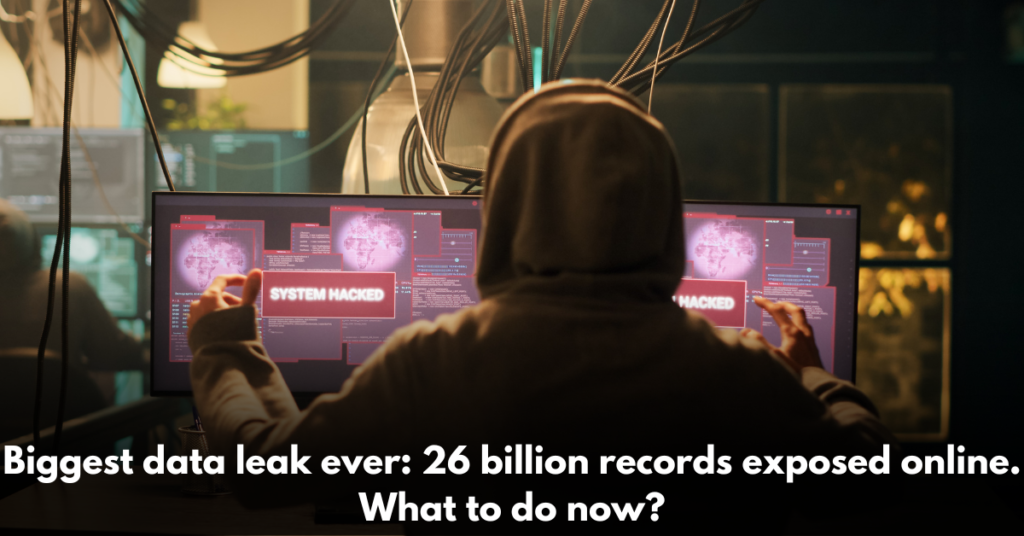Biggest data leak ever: 26 billion records exposed online. What to do now?
Cybernews has reported a massive Mother of All Breaches (MOAB) leak, which contains 26 billion records or 13 terabytes of data taken from previous leaks, breaches, and hacked databases. The leak was discovered on an open instance by cybersecurity researcher Bob Dyachenko. While the owner of this accessed data may never be identified, Cybernews’ security researchers believe they could be a hacker, a data broker, or another service that works with large amounts of data.
The Magnitude of the MOAB Leak
This MOAB leak is on a scale that has never been seen before, 26 billion records have been stolen. The fact that the owner of the data that was viewed has not been found further emphasizes how hard it is to hold those responsible accountable. Since cyber threats are always changing, people, businesses, and governments need to make data safety a top priority to avoid future breaches of this size.
Data at Perpetual Risk
The records, stolen from various platforms including
Weibo => 504 million
MySpace =>360 million
Twitter/X =>281 million
Wattpad => 271 million
Deezer => 258 million
LinkedIn => 251 million
AdultFriendFinder => 220 million
Adobe => 153 million
MyFitnessPal => 151 million
Canva => 143 million
Daily Motion => 86 million
Dropbox => 69 million
Telegram => 41 million
Records from government agencies in the US, Brazil, Germany, the Philippines, Turkey, and a few other countries are also in the leak.
Note: If you use any of these websites, there is a strong risk that your information has been leaked too.
Potential Misuse and Cyber Threats
Hackers can use this data for various criminal purposes, including identity theft, phishing attacks, targeted cyberattacks, and unauthorized access to users’ personal and sensitive accounts. The biggest threat is password re-use, as once hackers get your login details for one account, they will then use them to access your other accounts.
Immediate Steps to Protect Yourself
- Use strong, complex, and unique passwords for all online accounts.
- Enable two-factor security for added protection.
- Regularly monitor online accounts for any signs of fraud or unusual activities.
That being said, this MOAB has 26 billion records, which makes it the biggest collection of multiple breaches ever seen. Cybernews made its data leak tool to help people find out if their financial or personal data was leaked. These records should be ready for you to search soon.
Most of the data in this leak is older, so it’s less likely that these records will be used to attack you. But you should be more careful when you check your email and online accounts for signs of fraud and not fall for fake scams. No matter how old the data that was leaked is, you should always be on guard and check your online accounts often for any strange behavior.
Conclusion
Although security software can help keep you safe from viruses and other threats, it can’t keep your personal and financial information safe from being stolen or leaked. Identity theft security services can help get back money or identities that were stolen. Large data leaks like this one are expected to happen more often as we generate more data every day.



